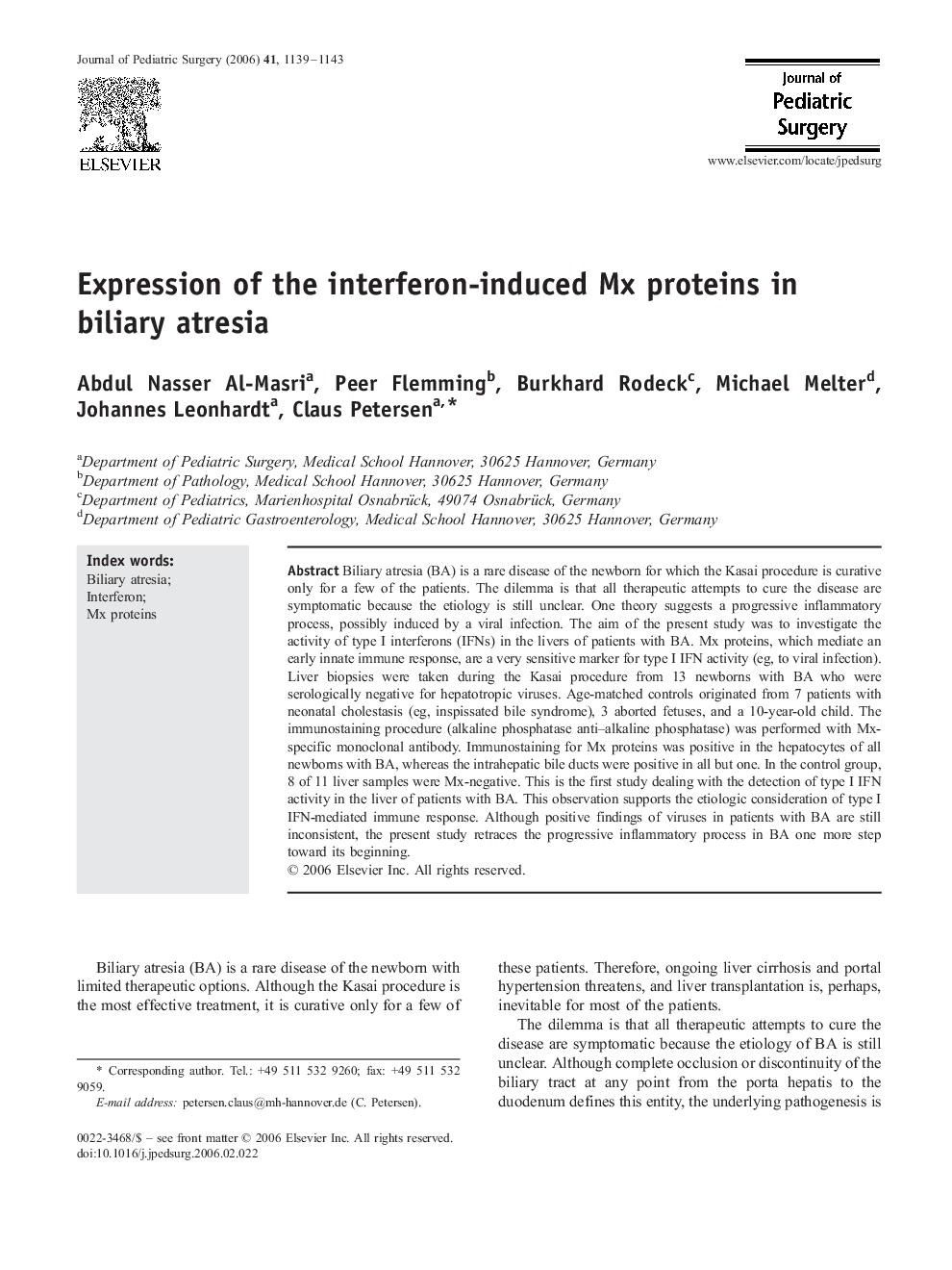| Article ID | Journal | Published Year | Pages | File Type |
|---|---|---|---|---|
| 4160246 | Journal of Pediatric Surgery | 2006 | 5 Pages |
Biliary atresia (BA) is a rare disease of the newborn for which the Kasai procedure is curative only for a few of the patients. The dilemma is that all therapeutic attempts to cure the disease are symptomatic because the etiology is still unclear. One theory suggests a progressive inflammatory process, possibly induced by a viral infection. The aim of the present study was to investigate the activity of type I interferons (IFNs) in the livers of patients with BA. Mx proteins, which mediate an early innate immune response, are a very sensitive marker for type I IFN activity (eg, to viral infection). Liver biopsies were taken during the Kasai procedure from 13 newborns with BA who were serologically negative for hepatotropic viruses. Age-matched controls originated from 7 patients with neonatal cholestasis (eg, inspissated bile syndrome), 3 aborted fetuses, and a 10-year-old child. The immunostaining procedure (alkaline phosphatase anti–alkaline phosphatase) was performed with Mx-specific monoclonal antibody. Immunostaining for Mx proteins was positive in the hepatocytes of all newborns with BA, whereas the intrahepatic bile ducts were positive in all but one. In the control group, 8 of 11 liver samples were Mx-negative. This is the first study dealing with the detection of type I IFN activity in the liver of patients with BA. This observation supports the etiologic consideration of type I IFN-mediated immune response. Although positive findings of viruses in patients with BA are still inconsistent, the present study retraces the progressive inflammatory process in BA one more step toward its beginning.
